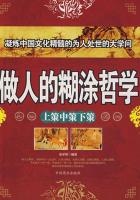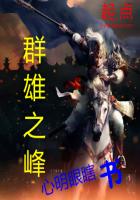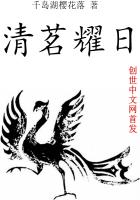He brings in time quietly without noticing it, or giving any account of it. He does not see that the idea of it in the concrete is involved in memory; we remember the event as happening <in time past>. He derives our idea of space from that of the time occupied by our muscular sensations: " When we say that there is a space between A and B, we mean that some amount of these muscular sensations must intervene." "Resisting points " are said to be " at different distances from one another, because the series of intervening muscular sensations is longer in some cases than in others " (pp.
228, 229). He thus avowedly makes, p. 227, an "identification" of length in time and length in space " as one; " whereas our consciousness declares them to be as different as it is possible for ideas to be. The hypothesis on which he and Professor Bain build their whole theory of the origin of our idea of extension, viz., the sensations of our muscles, is doubted by some. The conclusion of F.H.
Weber, from numerous and careful observations, is: "Of the Voluntary motion of our limbs, we know originally nothing.
We do not perceive the motion of our muscles by their own sensations, but attain a knowledge Of them only when perceived by another sense " (see Abbot on " Sight and Touch," P-- 71).
[39]J. S. Mill has made a most unwarrantable application of the laws of association, in accounting for the formation of our higher ideas. He labors to derive all our ideas from sensation through association. But sensations -- say of sounds, smells, colors, and forms, or of pleasure and pain -- can never be any thing else than sensations, -- that is sounds, smells, colors, forms, pleasures or pains, -- and never can of themselves yield such ideas as those of space and time, cause and effect, moral good and moral obligation.
But then he gives to association a sort of chemical power, bv which it changes a series of successive or contemporaneous ideas into something different from any of the ideas, just as oxygen and hydrogen by their union form a third substance, water. He is to be met here by showing that the laws of the association are merely the laws of the succession of our ideas, and they do not generate a new idea. Repeated association may quicken the flow of our ideas, and make several, as it were, coalesce into one, or it may weaken some and intensify others, but it cannot yield a new element. Even on the supposition that there is (which there is not) a chemical power in association to transmute one thing into another, this would be a new and different capacity, not in the sensations and associations, but superinduced upon them. Mr. Mill's professed evolution of our higher ideas out of sensation by association, is a mere jugglery, in which he changes the elements without perceiving it, and overlooks the peculiarities of the com.
posites he would explain.
He has been guilty of an equal error in very much overlooking the relations which the mind of man can discover; and, so far as he does notice them, in giving a very inadequate account of them. In this respect he is far behind Hume, who, we have seen, gives a very comprehensive summary of them. So far as Mr. Mill treats of them, he (followed by Professor Bain) seems to give the mind no other power of comparison than that of observing resemblances and differences. Nor is this his worst error. He confounds the judgments of the mind with associations, and thus endeavors, in a plausible but superficial way to account for that conviction of necessity which is appealed to as a test of fundamental truth. " If we find it," he says, "impossible by any trial to separate two ideas, we have all the feeling of necessity the mind is capable of " (P. 264). Now there is here the confounding of two things that are very different, the association of two ideas, so that the one always calls up the other, with the judgment which declares that two things are necessarily related. The letter A suggests the letter B; this is one mental phenomenon: we decide that two plus two makes four, and that it cannot be otherwise; this is an entirely different phenomenon. Now it is this necessity of judgment, and not the invariable association, that is the test of first truths. When we thus show that association cannot produce a new idea, and that judgment, especially necessary jud&nnents, are something different from associations, we deprive Mr. Mill's theory of the plausibility which has so deceived the London critics bred at the English universities, -- where, I may take the liberty of saying, they would be very much the better of instruction in a sound and sober philosophy.
[40]Here again, from like premises, J.S. Mill has arrived at much the same conclusions. Mind, according to him, is "a series of feelings," with "a belief of the permanent possibility of the feelings." He is to be met by showing that in every conscious act we know self as existing; that when we remember, we remember self as in some state; and that, on comparing the former self with the present, we declare them to be the same. This implies more than a mere series of feelings, or a belief (he does not well know what to make of this belief) in possibilities; it implies a self existing and feeling, now and in time past. Again: "Matter may be defined the permanent possibility of sensation." He is to be met here by showing that we apprehend matter as an existence external and extended, and that we cannot get this idea of extension from mere sensations which are not extended. As to the contradiction between the senses and the reason, which Hume maintains, Mr. Mill makes the reason and senses say the same thing, that we can know nothing whatever of matter except as the " possibility of sensation," and that it "may be but a mode in which the mind repre sents to itself the possible modifications of the Ego" (p. 189), which Ego is but a series of feelings. This conclusion is quite as blank as that reached by Hume.















